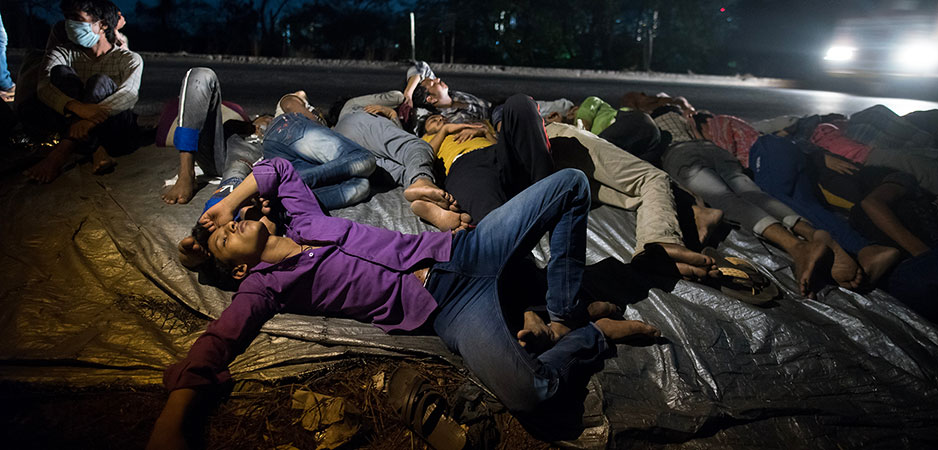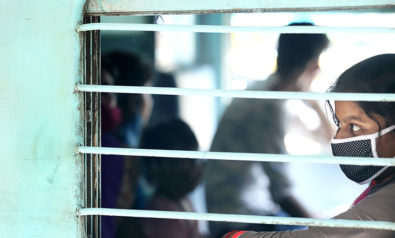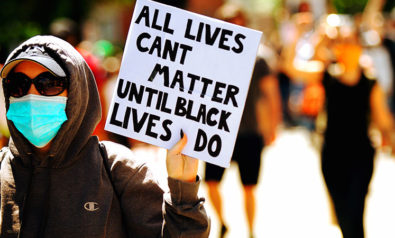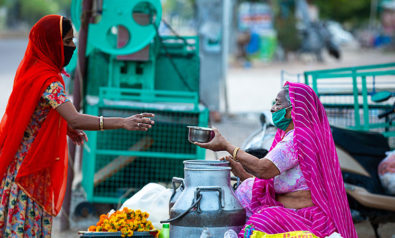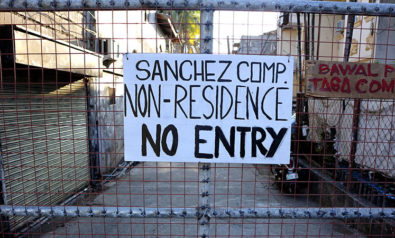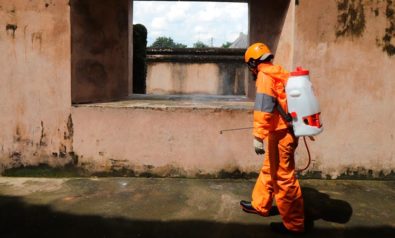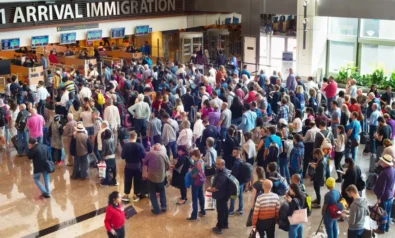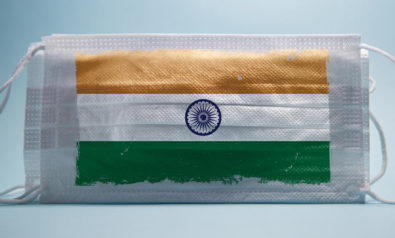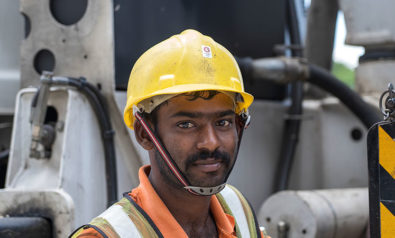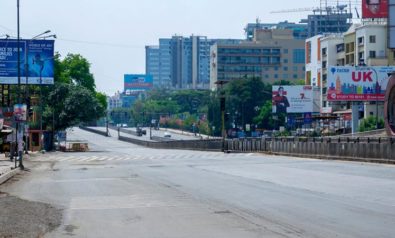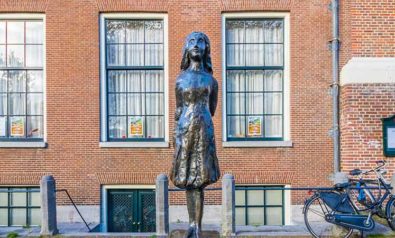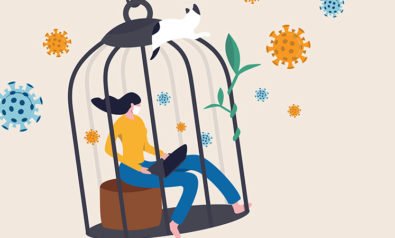This is not yet another article on the sorry exodus of millions of Indians from cities that played out on primetime TV when the coronavirus pandemic led to a lockdown. It is not a piece about the government, or about politics or economics. It is neither critical nor sacerdotal. It is not about Prime Minister Narendra Modi or the Biblical scale of suffering that he has inflicted yet again on those who have put their trust in him. This is not about a callous finance minister with the rictus of arrogance stretched across her face. It is not about a judiciary that has thrown away its moral compass in the arid deserts of ambition and preference. It is not about a media that has struck a Faustian bargain with Mephistopheles and is content to feed on the offal flung its way. It is not about Rahul Gandhi or Mayawati or Nitish Kumar, for they have already become irrelevant to the current political narrative.
Bringing Stranded Workers in Indian Cities Back to Their Villages
This article is about me and the burden I carry. It is a burden of shame that has been sitting on my back for several weeks and cannot be dislodged no matter how hard I try. It is a burden that just got heavier when I read a post by an army officer describing his moving encounter in Gurgaon with families of “migrants” walking 1,162 kilometers on their way to Bihar with no footwear. Their weary soles were treading on roads melting under the unforgiving summer sun. Many were thirsty and hungry. Some were accompanied by 4-year-olds who could scarcely make sense of what was going on. When the officer gave the migrants a few 500-rupee ($6.70) notes, they wept and tried to touch his feet.
The Shame, the Burning Shame
Reading and thinking about the migrants makes me hang my head in shame. The India of 2020 is a country that exiles tens of millions from their cities, fearful of catching an infection from them. The virus they fear was not brought to the country by these poor millions. It was brought to India by the likes of me flying in from abroad.
I am ashamed of my country and my society treating the hapless victim as the perpetrator. I hang my head in humiliation when I see privileged Indians like me turning into gullible cretins who swallow all the lies and half-truths churned out by a dissembling official apparatus. I am pained when they beat pots and pans in a servile hosanna to an uncaring presiding deity to drown out the sounds of tired feet marching to their distant villages.
I can no longer recognize the religion I was born into. It no longer has the wisdom of its ancient rishis or the compassion of Ashoka or the humility of Mahatma Gandhi. It is too full of anger, hatred and violence. It has replaced caring deeds with death rituals. It once fed the mendicant and the poor, but it now drives them away as carriers of some dreadful disease. It even finds an opportunity in this pandemic to stigmatize other religions.
I am ashamed of my middle-class status, of many of my friends, colleagues and even some members of my extended family. Cocooned safely in our gated societies and sectors, we have locked out our maids, drivers, delivery boys and dozens of others who have built for us the comfortable lives we enjoy. Now, we desperately try to cordon ourselves off from the less fortunate whom we have shamelessly deprived of their livelihoods. We encourage another extension of the coronavirus lockdown because our own salaries and pensions are not affected. Our primary concerns revolve around the resumption of deliveries from Amazon and Swiggy. We dismiss the lot of the migrating millions as their fate, the final subterfuge of a society that no longer cares.
I am ashamed of the thought processes of my class that sends countless WhatsApp messages opposing any more “doles” to the hungry millions. My class denounces the Mahatma Gandhi National Rural Employment Guarantee Act (MNREGA), the only lifeline the returning migrant laborers have left, as a waste of public money. The middle class even denounces food camps as a misuse of their taxes. I am ashamed that people like me can encourage the police to beat up the returning hordes for violating the lockdown, which, in the ultimate analysis, was meant to protect “us” from “them.”
For the life of me, I am unable to comprehend how we, sitting in our four spacious bedroom flats, have the heartlessness to blame 16 tired laborers for their own deaths. Instead of mourning the dead, we ask: Why were they sleeping on railway tracks? How can one not be ashamed when I hear my peers decrying the expense of trains and buses for the returning migrants and the costs of putting them up in quarantine while, at the same time, applauding the government for flying back members of their class stranded abroad using Air India? This is not just double standards, it is completely morally bankrupt standards.
I am ashamed of my social milieu. In 2020, it lauds the prime minister for dismissing the cataclysmic sufferings of almost 5% of our population as tapasya, a hard-to-translate Sanskrit word for austere meditation, conveniently forgetting that tapasya is an act of choice and the poor had none.
I am mortified to see the layers of education and affluence coming off to reveal a heartless hardness among my peers. The very facade of civilization is being peeled back by a virus to disclose a heart of darkness in our collective inner core. The subcutaneous mucous of hatred and intolerance for a minority community and contempt for the destitute has now been laid bare. All age-old prejudices, bigotry, racism and narrow mindedness have reemerged, fanned by a party that has fertilized their dormant spores.
Of Generals, Judges and More
It is not just the middle class that puts me to shame. The state I served loyally for decades has now been found wanting. I am ashamed of the dozens of four-star generals and beribboned admirals and air marshals who are quick to shower flowers and light up ships at a dog-whistle from a politician but do not move a finger to provide any help to the marching millions. Did it even occur to them that they owe a duty to this country beyond strutting around at India Gate?
They could have used their vast resources and vaunted training to set up field kitchens for the hungry marchers. They could have put up tents where the old and infirm could catch a few breaths. They could have arranged transport to ferry at least the women and children to their distant homes. Their valor might have been tested at the borders, but their conscience has been found wanting closer to home.
I am also ashamed of our judges who have now become prisoners in their carefully crafted ivory towers. They had repeated opportunities to order the executive to provide meaningful relief and succor to the exiled wretches. They could have enforced what little rights the suffering migrants still had left but did nothing to provide support to the poor or constrain a power-drunk executive.
I am ashamed of our state governments who have forsaken the very people who elected them. They are using their vast powers not to provide desperately poor migrants with much-needed humanitarian aid, but to take away the few rights they had won over the last 50 years.
I am ashamed of a bureaucracy that uses a catastrophe to further enslave those who have already lost everything. It insists that illiterate laborers fill out online forms to register for evacuation and pay hundreds of rupees, which they cannot afford and do not have, for rail tickets. These worthy bureaucrats insist that the poor produce ration cards and other assorted documentation before they can get five kilograms of rice, even as the police beats them to a pulp.
I am particularly ashamed of a joint secretary in the government who apportions blame for the infections on the basis of religion. This is not just Orwellian and Kafkaesque. This is a government and a bureaucracy that has gone berserk. I wonder again and again: How can one not be ashamed of such a soulless administration and of the people who commend its mistakes?
When the dust settles, the marching millions will reach their homes, minus a few thousand who will inevitably die on the way. The dead will not even be mentioned in the statistics. There will not even be a Schindler’s list for them. We will pat ourselves on our collective genuflecting backs for taking care of the greatest public health problem since independence. We will celebrate beating back the danger to our neoliberal civilization.
Now that the virus carriers have been banished to their rural homes, the curve will now flatten. However, the mirror has cracked and can never be made whole again. As the bard from Stratford-upon-Avon penned, the fault is not in our stars but within us. Or, as delectably said by another great bard, one of our own who, in 2020, now belongs to the “others”: “All through your life Ghalib, you made the same mistake. The dust was on your face, but you kept cleaning the mirror.”
To be honest, this article is not just about me. It is also about you if you are an Indian, middle-class reader. Gaze into that cracked mirror. Do you feel any shame, howsoever little, for what we have become? Do you feel even a pang of regret for the lost soul of a once-great nation?
*[An earlier version of this article was published on the author’s blog.]
The views expressed in this article are the author’s own and do not necessarily reflect Fair Observer’s editorial policy.
Support Fair Observer
We rely on your support for our independence, diversity and quality.
For more than 10 years, Fair Observer has been free, fair and independent. No billionaire owns us, no advertisers control us. We are a reader-supported nonprofit. Unlike many other publications, we keep our content free for readers regardless of where they live or whether they can afford to pay. We have no paywalls and no ads.
In the post-truth era of fake news, echo chambers and filter bubbles, we publish a plurality of perspectives from around the world. Anyone can publish with us, but everyone goes through a rigorous editorial process. So, you get fact-checked, well-reasoned content instead of noise.
We publish 2,500+ voices from 90+ countries. We also conduct education and training programs
on subjects ranging from digital media and journalism to writing and critical thinking. This
doesn’t come cheap. Servers, editors, trainers and web developers cost
money.
Please consider supporting us on a regular basis as a recurring donor or a
sustaining member.
Will you support FO’s journalism?
We rely on your support for our independence, diversity and quality.


